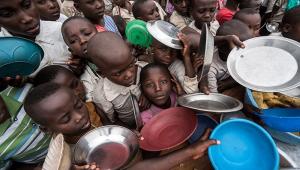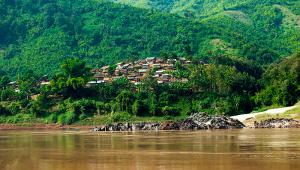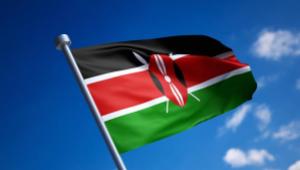A new report, Shock Waves: Managing the Impacts of Climate Change on Poverty, finds that poorer people are much more at risk from climate-related shocks. Such shocks both prevent some from climbing out of poverty and wipes out any hard-won gains by those that have, the report argues.
World Bank president Jim Yong Kim said: “This report sends a clear message that ending poverty will not be possible unless we take strong action to reduce the threat of climate change on poor people and dramatically reduce harmful emissions.
“Climate change hits poor people the hardest, and our challenge now is to protect tens of millions of people falling into extreme poverty because of a changing climate.”
The report found that high vulnerability to crop failures from reduced rainfall, spikes in food prices after extreme weather events and increased incidence of diseases after heatwaves and floods could lead to irreversible losses and push many back into poverty, especially in Africa and South Asia.
It found that the poorest people are much more exposed to climate-related risks than the average population, and lose much of their wealth when they are hit.
The poorest people live in those countries where food production is expected to decrease because of climate change. Global crops could yield losses as large as 5% by 2030 and 30% by 2080, the report argues, saying that a decline in agriculture will be the main driver of any increase in poverty.
Food prices in Africa for example could increase by as much as 12% in 2030 and 70% by 2080 as a result of climate change ‒ which the report describes as a “crippling blow” to those nations where food consumption of the poorest households amounts to over 60% of total spending.
Health effects, such as higher incidences of malaria, diarrhoea and stunted growth, and the labour productivity effects of high temperatures, which the poorest are also more exposed to, will be the next largest drivers.
The report calls for efforts to improve the resilience of the poorest people, such as stronger social safety nets and universal health coverage, and climate-specific measures such as upgraded flood defences, early-warning systems and climate-resistant crops.
Simultaneously, the report says an all-out push to reduce greenhouse gas emissions is needed to reduce the long-term threat that climate change poses for poverty reduction.
Mitigation efforts should be designed to benefit rather than burden the poor, the report said, for example by reinvesting savings from eliminating fossil fuel subsidies in assistance schemes to help poor families cope with higher fuel costs.
Support from the international community will also be essential, especially when it comes to investments with high upfront costs, such as urban transport and resilient energy infrastructure.
Stephanie Hallegatte, a senior economist at the World Bank and leader of the team who prepared the report, said: “The future is not set in stone. We have a window of opportunity to achieve our poverty objectives in the face of climate change, provided we make wise policy choices now.”
A major international conference on climate change – COP21 – will take place in Paris in early December.













